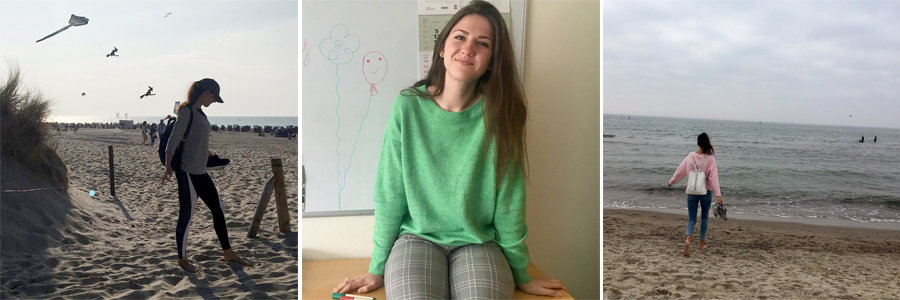Young Europeans wanting to make a difference and to promote solidarity among people have been volunteering in Interreg projects and Programmes since March 2017 as part of the Interreg Volunteer Youth (IVY) run by the Association of European Border Regions. It was recently decided to continue IVY beyond summer of 2018. Ruta Kaminskaite from Lithuania has been working in the Managing Authority/Joint Secretariat of Interreg Baltic Sea Region since April and shares reflections of hers.

© Ruta Kaminskaite
Starting small
Two months ago, I started my IVY experience, a journey that brought me from the southeastern shores of the Baltic Sea to its southwest, at the Managing Authority/Joint Secretariat of the Interreg Baltic Sea Region Programme. Coincidentally, I came together with the deadline to submit project proposals in the Programme’s third call. Applications were piling up and I could sense a change in the pace at the office. During the first week I felt like watching a fast motion movie scene: while the working days of my colleagues were becoming more fast-paced, I was spending most of my time in the project library, slowly familiarising myself with projects which are being implemented now. It was a great introduction to the main objectives within the Programme which function like guidelines while going towards the vision of more innovative, accessible and sustainable Baltic Sea region. Besides, I have found myself amazed by the number of innovative transnational projects coping with common issues. The Baltic Sea Region Programme is all about making such projects happen by supporting them financially, with the aim to solve common challenges related to natural resources, innovation infrastructures or sustainable transport.
Keeping pace
However, around two months flew by since I first set my foot in the office and much has changed. I could sense the change best during meetings. At the first ones, I was struggling to follow the topics and questions discussed. Today, I do not feel this struggle any more. For almost eight weeks, I assisted the work of the communication officers. My Interreg reporter mission is defined as conducting research on projects that were implemented in previous programming periods. Many of them have effects still today. And it is important to tell their stories as they are great examples of European integration. However, half of my volunteering experience was more like a run-up to finally carrying out research on my own. For example, I prepared and learned by contributing to an article about the currently ongoing projects LowTEMP and AREA 21, which are working on boosting energy efficiency in the Baltic Sea region. This gave me a general understanding of the benefits of transnational cooperation. Also, observing the projects’ assessment phase and being curious about it provided me with some specific knowledge on how projects need to be structured in all its parts and how the selection process goes.
Discovering Rostock
Also, let’s not forget that I was introduced to Rostock – the Hanseatic city I am glad I had a chance to discover. From getting lost in the streets’ maze, all the time coming across some wonderful piece of street art or approaching the friendliest people who encourage me to speak more German to hiking to golden Warnemünde beaches, I find this city as suiting me perfectly. I cannot be more thankful for these experiences at half time and more curious about what awaits ahead.
By Ruta Kaminskaite, IVY Volunteer at Interreg Baltic Sea Region






